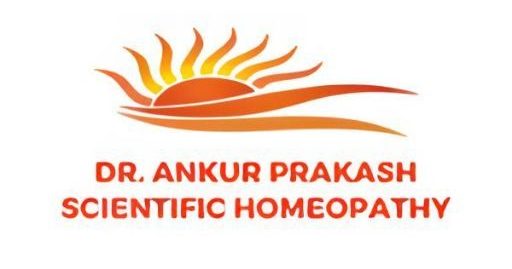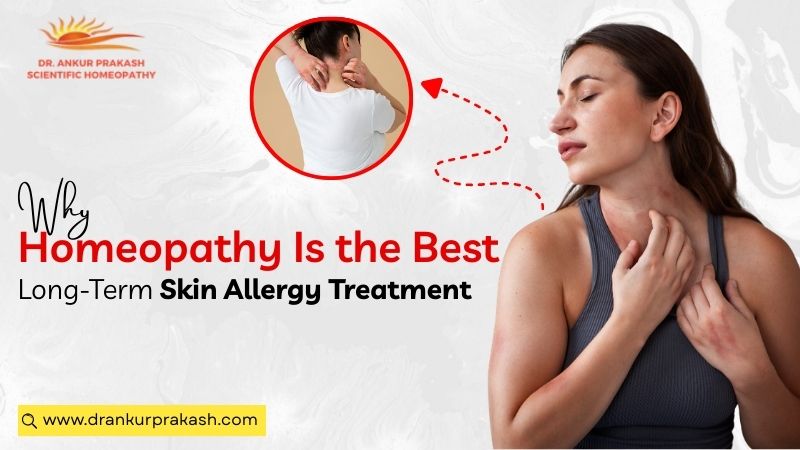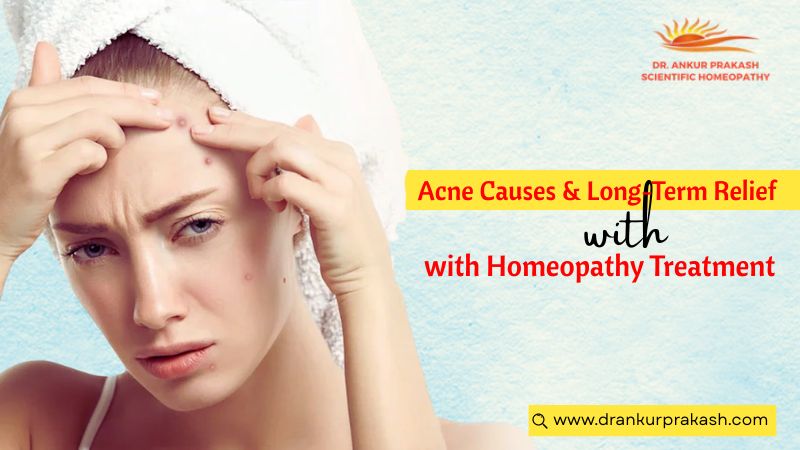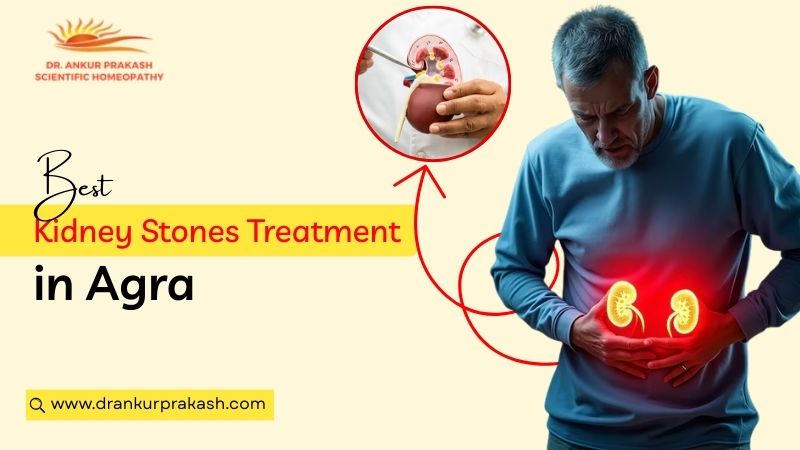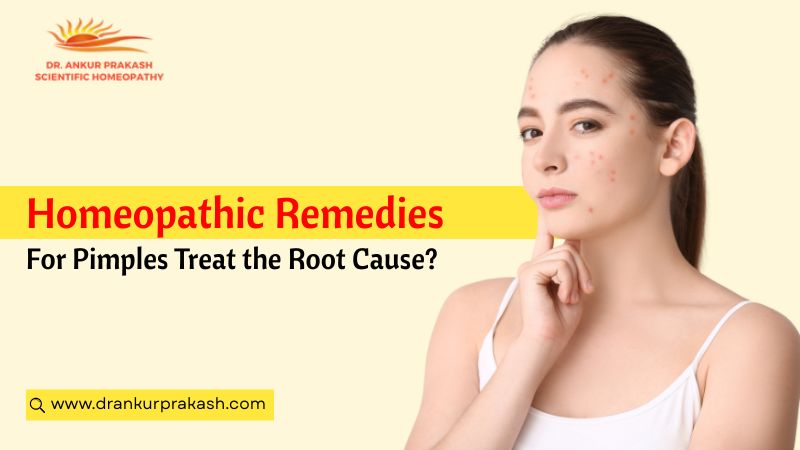Acne is a widespread skin condition that affects individuals of all ages, often linked to hormonal changes, excess oil production, clogged pores, and bacterial infection. While conventional treatments focus on topical and antibiotic solutions, homeopathy takes a holistic approach—addressing the root causes such as hormonal imbalance, stress, diet, and overall health. If you’re seeking expert guidance, a Skin Doctor in Agra can help you understand the best treatment approach for your skin. This blog explores the types, symptoms, and causes of acne, along with effective prevention strategies. It also highlights how homeopathic medicine offers personalized, side-effect-free solutions that not only clear the skin but also restore internal balance.
What is Acne?
Acne, medically known as acne vulgaris, is a chronic inflammatory skin condition that results from the blockage and inflammation of hair follicles and their associated sebaceous (oil) glands. Though most common during adolescence due to hormonal surges, acne can persist well into adulthood.
There are various types of acne:
- Comedonal acne: Characterized by blackheads and whiteheads.
- Inflammatory acne: Red, swollen pimples that can be painful.
- Cystic acne: Deep, pus-filled pimples that often lead to scarring.
While acne is not life-threatening, it can cause significant emotional distress, affecting self-esteem and social interactions.
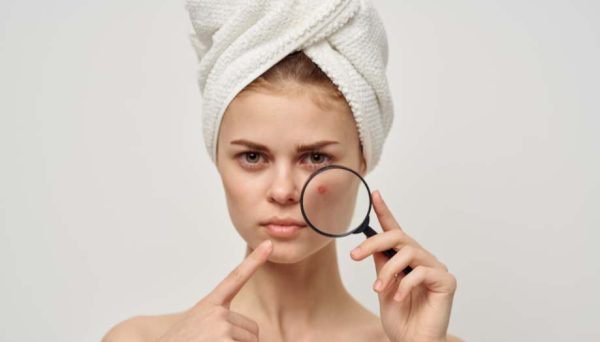
Symptoms of Acne
The symptoms and severity of acne can vary based on age, hormonal levels, genetics, and lifestyle. Common symptoms include:
- Whiteheads (closed comedones): Pores clogged with oil and skin cells, covered by a thin layer of skin.
- Blackheads (open comedones): Similar to whiteheads but exposed to air, causing oxidation and black color.
- Papules: Small, red, tender bumps.
- Pustules: Papules with pus at their tips.
- Nodules: Large, painful lumps deep within the skin.
- Cysts: Deep, inflamed, pus-filled lesions that can lead to scarring.
Secondary symptoms may include:
- Skin tenderness
- Inflammation
- Hyperpigmentation or post-acne marks
- Scarring (especially from nodules and cysts)
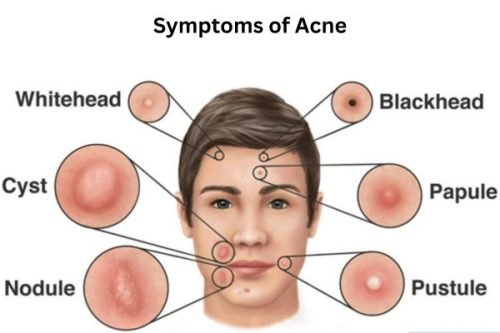
Causes of Acne
Acne is multifactorial, which means it arises due to a combination of internal and external factors:
1. Hormonal Fluctuations
Androgens (male hormones present in both men and women) increase during puberty, pregnancy, menstruation, or conditions like PCOS.
These hormones stimulate sebaceous glands to produce more sebum (oil), which contributes to clogged pores.
2. Excess Sebum Production
Overactive oil glands result in greasy skin, which, when mixed with dead skin cells, can block hair follicles.
3. Bacterial Infection
The bacteria Propionibacterium acnes (P. acnes) lives on the skin and feeds on sebum. Its overgrowth leads to inflammation and pus formation.
4. Clogged Hair Follicles
Dead skin cells don’t shed properly and mix with oil to clog pores.
5. Diet
Studies show high-glycemic-index foods (white bread, sugary snacks) and dairy may exacerbate acne in some people.
6. Stress
Stress doesn’t directly cause acne but can worsen it by affecting hormonal balance and delaying wound healing.
7. Cosmetics and Skincare Products
Comedogenic makeup and oily skincare products can block pores.
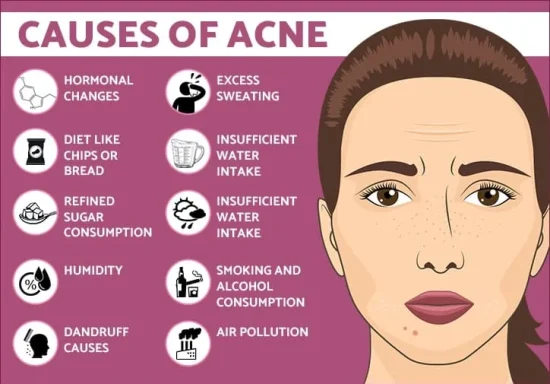
Prevention of Acne
Although acne isn’t always avoidable, adopting certain practices can reduce its frequency and intensity:
- Cleansing: Wash your face twice daily with a gentle, non-drying cleanser.
- Non-comedogenic Products: Use makeup and skincare labeled “non-comedogenic” or “oil-free.”
- Avoid Touching Your Face: Your hands can transfer dirt and bacteria to your face.
- Balanced Diet: Reduce intake of sugary foods and dairy; increase antioxidants and omega-3s.
- Hydration: Drink 2–3 liters of water daily to help flush out toxins.
- Manage Stress: Incorporate yoga, meditation, and regular exercise.
Sleep Well: Aim for 7–8 hours of quality sleep to help hormone regulation and skin repair.
Homeopathy Treatment for Acne
Homeopathy works on the principle of “like cures like” and focuses on stimulating the body’s natural healing mechanisms. In acne, this means not just treating the pimples, but also addressing internal causes like hormonal imbalance, poor digestion, stress, or chronic conditions.
Key advantages of homeopathic acne treatment:
- Treats root causes like hormonal imbalance or emotional stress.
- Personalized treatment plans for each individual.
- No harsh chemicals or side effects.
- Can be safely used alongside conventional medicine.
Homeopathy views acne not as an isolated skin issue but a sign of inner imbalance—whether it’s digestive dysfunction, emotional stress, or endocrine disruption.
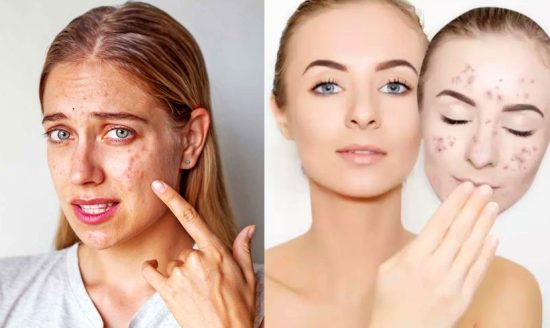
Homeopathy Medicine for Acne
Homeopathic remedies are selected based on the totality of symptoms, not just the visible acne. Here are some commonly used remedies:
1. Hepar Sulphuris Calcareum
For painful, pus-filled pimples.
Best for sensitive, chilly individuals who get worse in cold air.
2. Silicea
Deep, cystic acne that drains slowly.
Helps clear chronic skin infections and improve immunity.
3. Sulphur
For people with greasy skin and frequent breakouts.
Itchy acne worsens with heat and bathing.
4. Kali Bromatum
Nodular acne on face, chest, and shoulders.
Often used in teenagers prone to scarring and oily skin.
5. Natrum Muriaticum
Acne associated with hormonal changes or emotional grief.
Skin is oily with greasy forehead and hair.
6. Pulsatilla
Best for acne during puberty, menstruation, or pregnancy.
Pimples aggravated by fatty food and emotional triggers.
7. Berberis Aquifolium
Improves skin complexion and reduces pigmentation.
A great choice for post-acne marks and dull skin tone.
Note: Do not self-medicate. Consult a certified homeopath like Dr. Ankur Prakash for a precise remedy suited to your case.
Homeopathy Treatment for Skin Problems
Skin problems such as acne, eczema, psoriasis, fungal infections, and pigmentation often indicate deeper internal imbalances related to hormones, immunity, stress, or digestion. Instead of only suppressing visible symptoms, a holistic approach focuses on identifying and correcting these root causes. Homeopathy Treatment for Skin Problems supports the body’s natural healing process through carefully selected, individualized remedies based on a person’s physical condition and emotional health. With guidance from the best skin doctor in Agra, this gentle and personalized method can help improve overall skin health, reduce recurrence, and restore long-term balance naturally.
Homeopathy Treatment for Pimples
Homeopathy Treatment for Pimples offers a gentle and natural way to manage pimples on the face by addressing underlying causes such as hormonal imbalance, stress, digestive issues, and immune system disturbances. Unlike conventional treatments that often target only the surface symptoms, homeopathy works holistically to restore balance in the body, aiming for long-term improvement and prevention of recurring pimples.
Homeopathic medicines for pimples on face:
- Sulphur – Helps reduce inflammation, redness, burning sensation, and recurring pimples, especially those aggravated by heat or poor hygiene.
- Hepar Sulphuris Calcareum – Effective for painful, pus-filled pimples that are sensitive to touch and prone to infection, supporting faster healing.
How to Manage Acne Triggers?
Managing triggers is key for long-term control of acne. Here’s how:
Track Personal Triggers
Maintain a diary to log acne flare-ups and possible causes like stress, food, or weather changes.
Hormonal Support
Consider homeopathic constitutional treatment if acne is tied to hormonal issues like PCOS, thyroid imbalance, or puberty.
Maintain Gut Health
A healthy digestive system leads to better toxin elimination, which reflects on the skin.
Hygiene Habits
Change pillowcases every few days.
Clean makeup brushes weekly.
Avoid harsh exfoliants or over-washing, which strip natural oils.
Skin Care
Use a gentle exfoliator once or twice a week to prevent clogged pores.
Apply natural masks (like fuller’s earth, turmeric, aloe vera) occasionally.
Disclaimer: This blog is intended for educational purposes only. It does not constitute medical advice, diagnosis, or treatment. Always consult with a qualified healthcare professional or certified homeopath before starting any form of treatment, including homeopathy.
Homeopathy Face Wash for Acne
A homeopathy-based face wash helps cleanse the skin gently while targeting acne from its root causes. It supports clear, healthy, and balanced skin without harsh chemicals. Using homeopathy for acne can help improve skin health from within while preventing future breakouts.
Benefits:
- Helps reduce acne, pimples, and redness naturally.
- Keeps skin clean, fresh, and oil-free without dryness.
- Gentle on sensitive skin and suitable for daily use.
Final Thought
Acne is more than just a surface issue—it reflects internal health imbalances. Conventional treatments may offer quick fixes, but homeopathy provides sustainable, side-effect-free results by addressing the root cause. With guidance from the best skin specialist doctor in Agra, many individuals have experienced holistic recovery from acne through homeopathy.
If you’re looking for a natural, personalized, and long-lasting solution, homeopathic care can help restore clear skin and inner balance. Let your skin reflect true health and confidence.
